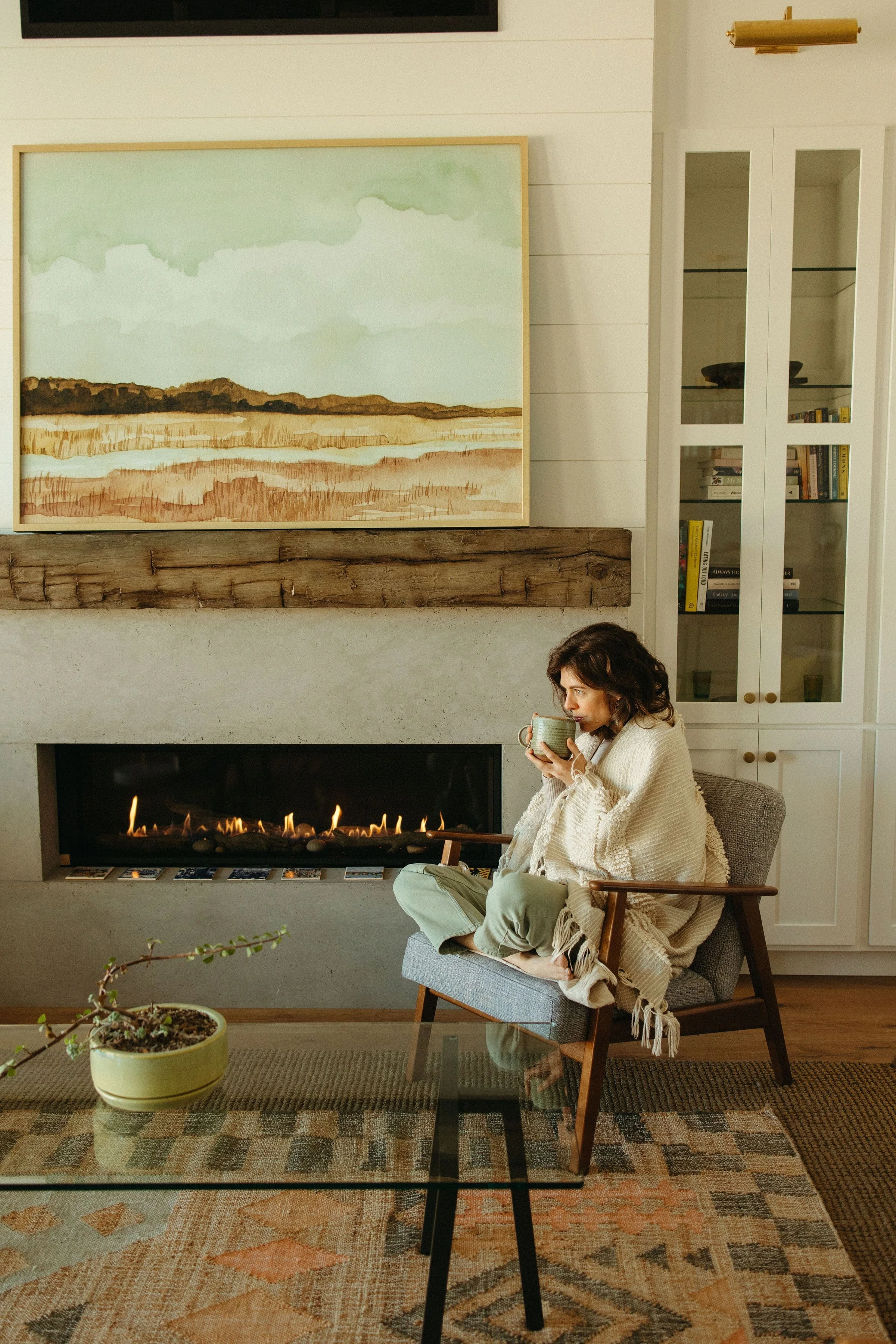Could self-kindness be the missing link to food and body challenges?
Self-love is a trendy aspiration. It also feels cliche, out of reach, and dismissive of the true internal struggles we can experience in the wake of body disappointment, unworthiness, and shame. The opposite of self-love is self-abandonment, or the act of neglecting, judging, and blaming ourselves. That’s no good either. But it’s an all-too-common practice that undermines our self-trust, mental well-being, resilience, agency, and morale.
Self-kindness, on the other hand, feels more genuine to me — an accessible middle path. And it’s a theme that appears in many of my clients’ healing journeys.
Whether or not you struggle with food and body, so much of healing painful emotional patterns is a lesson in learning to stay by your own side when in distress. In other words, rather than dismiss or disconnect from the challenge, the healing process often requires people to bring awareness and self-compassion to it.
Why don’t we stay by our own sides?
Humans self-abandon in part because strong emotions feel threatening. Most of us weren’t taught how to build the capacity to sit with discomfort or navigate our emotional world. It’s more likely we were taught — or experienced first-hand — that feeling and expressing pain threatens our sense of control, strength and ability to move on, or safety and connection with others. For example, maybe your distress was dismissed as a child or by a partner in adulthood, reinforcing the belief that you and your feelings don’t matter to others — so why should they matter to you? Or you were told that crying won’t get you anywhere and you need to fake it till you make it. Or, as a member of a misogynistic society, you’ve learned that when you show emotion, others may question your capability to remain logical.
Uncertainty, self-doubt, fear, ambivalence, anxiety, loneliness, and living grief are some of the uncomfortable and painful experiences I’m all too familiar with. But when we practice self-kindness because we’re struggling with these states of mind, we give ourselves the gift of feeling seen and validated.
It’s a counterintuitive process; kind acknowledgment - a key skill in self-compassion - helps us feel stronger and more capable, not less. It soothes a dysregulated nervous system, diffuses the intensity of our emotions, and removes their charge. In turn, we are less reactive and more resilient, grounded, and willingly conscious of our choices.
How do we learn to be kind to ourselves, rather than abandon ourselves?
The way we master the art of not abandoning ourselves is by learning to acknowledge and allow what feels true for us, validate those needs, and nurture ourselves in an authentic way. I describe this process as “self-honoring.” It requires us to offer ourselves radically authentic care — the kindest way we can be with ourselves.
Trauma expert Dr. Gabor Mate believes we have traumatic experiences, but the deeper trauma is what follows that experience — the moment we retreat and turn away from ourselves. In other words, the point in time when we suppress or neglect the pain we feel and abandon our own needs.
In practice, self-honoring is the act of turning toward ourselves. Just as you’d acknowledge a friend you meet on the street by literally turning to face them and give them your attention, turning toward ourselves means being present to our thoughts, feelings, energy, and physical sensations.
This presence may look like:
acknowledging feelings of discontent or disappointment about your body; noticing the tight muscles; identifying the internal chatter and story of unworthiness or not-good-enoughness we tell ourselves.
holding this awareness with acceptance (eventually, curiosity) rather than judgment, without immediately trying to “fix” it.
leading with empathy and providing space and nourishing outlets to allow, process, express, and release our emotions before turning to food, alcohol, perfectionism, or something else to distract or numb.
How can we practice self-kindness during moments of distress?
Self-kindness is not only about bubble baths and pedicures, although those are nice to do. Deeper, authentic kindness that responds to your own core needs could look a lot different.
A simple but powerful practice I share with clients is to pause and ask yourself: “What is the kindest thing I can do for myself right now?” A similar question I’ve heard and like is: “What can I do to make myself 5% or 10% more comfortable right now?”
Self-kindness can be action-oriented and may look like:
Getting quiet: Walking, driving, washing dishes in silence, allowing your mind to declutter and your nervous system to decompress
Tuning into the energetic signals your body gives you: Identifying if you feel hyper alert, jittery, tight and contracted, lethargic, or dull, and thinking about what could be genuinely soothing
Grounding yourself: Getting under a blanket, sipping hot herbal tea, showering, taking a walk to get space and move excess energy through, or walking barefoot in grass
Other times, self-kindness may be a quieter, more internal process. This could look like:
Self-acknowledgment: The act of turning toward yourself and acknowledging the pain; naming it, writing it down, speaking it to a friend. Reminding yourself of your common humanity, that you are not alone in your pain. This is genuine self-compassion, and it can combat feelings if isolation, invisibility, and stuckness.
Recognizing when you have limited capacity to be patient and compassionate with yourself, your body, or the unhelpful behaviors you’re still entangled with: Saying: “This is where I am right now, and that’s okay.”
Simply asking yourself one of the questions above and sitting with the awareness, without pressuring yourself to act on it: Letting it be enough to just watch what comes up and celebrating when you’re able to recognize these emotional patterns play out in real time (this is a good thing!)
Asking a question or being with one of these practices interrupts the automatic urge to check out, even if for just a few seconds. In that pause we can begin to consider a wider set of possibilities for how we can authentically show up for ourselves in order to alleviate some of the discomfort and overwhelm. Giving ourselves this attention — even without changing behavior — is a significant step in the healing process.

